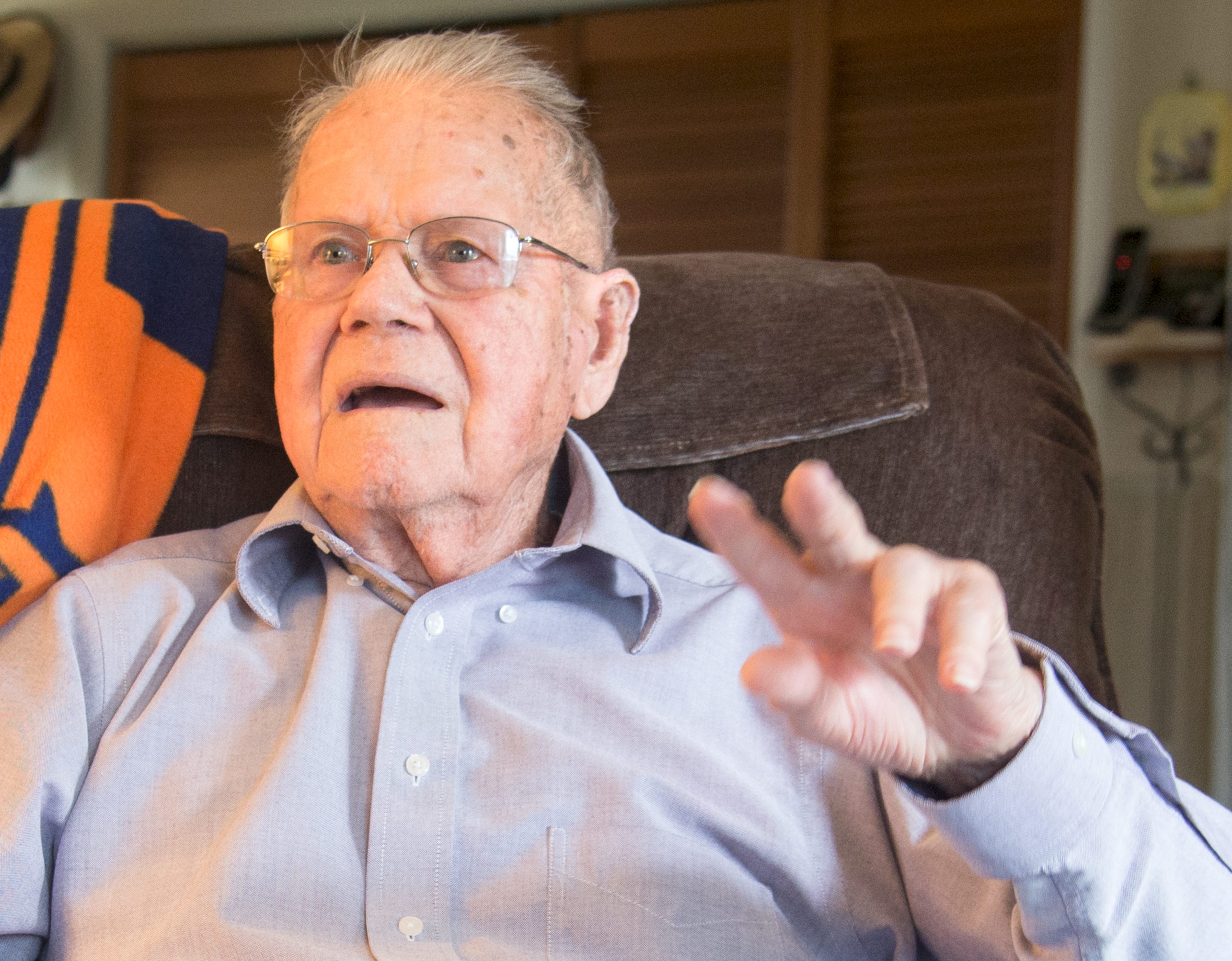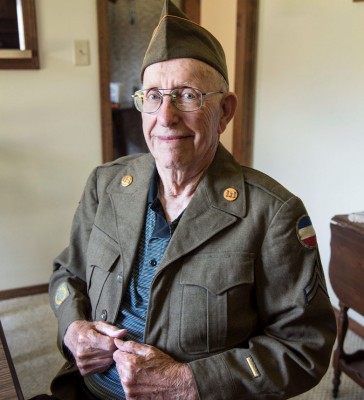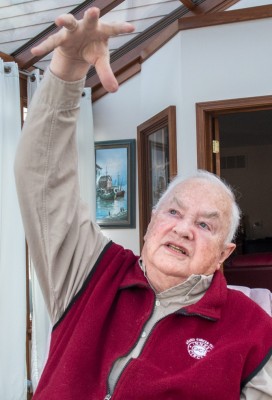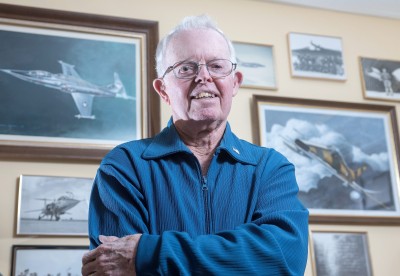Warren McCarty
By Paul Wood

Photo By Robin Scholz/The News-Gazette
RANTOUL — From an injury when a bazooka backfired, to meeting starving Germans, to making a deal with a Russian soldier, Warren McCarty kept busy at the end of World War II in the infantry.
The staff sergeant is now 94 years old, and sent hundreds of letters to his future wife from Europe that jog his memory.
He grew up in St. Joseph, and later lived in Champaign, where he worked and retired from the grounds department of the University of Illinois.
He graduated from St. Joseph High School in 1941, just before the Japanese attacked U.S.-held islands in the Pacific Ocean on Dec. 7, 1941.
While working at the former Robeson’s Department Store, he tried to get into the Navy to fight the Japanese, but he had a heart murmur that kept him out.
He was drafted into the Army, which needed anyone it could get, and they took care of his minor heart problems soon after he entered the service.
By February 1943, he was getting training at Camp McCoy in Wisconsin, still a base today, and then was sent on for further training as a radar operator.
But when he was sent off to Europe in the waning months of the war in Europe, it was as an infantryman, and he learned how to use grenades and bazookas.
The bazooka accident proved to be minor, just a sliver in his little finger.
While in Germany, he saw the suffering that German civilians endured as Adolph Hitler threw every resource into a futile attempt to win a war on two fronts, with the Allies nearing Berlin from the West and Soviet forces closing in on Hitler’s bunker from the east.
American troops threw away some of the food they were given, “and the German boys took it right out of the trash and ate it,” he says.
“Otherwise, we didn’t associate with the Germans very much” and kept to their fellow infantrymen, he adds.
Sometimes McCarty slept in barracks, and sometimes “just on top of hay.”
What the grub soldiers ate was not haute cuisine, and he hungered for home food.
“Thanks for eating chicken for me, honey,” he wrote his girlfriend Vera, “and you ate the white meat, the kind I like.”
His happiest times were on rest and recreation in Switzerland, where he visited Berne and Lucerne.
“It was so beautiful,” he says.
Russian and American troops got along with each for a time after they met at the Elbe River, he says, and he was able to take advantage of the Switzerland trip to make that deal with a Russian.
“I sold him a watch that I bought in Switzerland,” McCarty recalls.
When the war in Europe ended on May 8, 1945, McCarty was nothing but happy to hear Hitler had committed suicide in his bunker.
“We were just so happy that the war was over,” he recalls.
But the war continued with Japan, with the brutal and bloody taking of one island after another.
For McCarty, that meant his unit was scheduled to move from Europe to the South Pacific.
“We were out on maneuvers when we heard about the war ending with Japan” after the dropping of two atomic bombs on Hiroshima and Nagasaki, he recalls.
“We were safe,” McCarty says.
But he would spend many more months in Europe, working in the supply section into 1946, because he didn’t have enough points earned to be mustered out.
Finally, McCarty was able to marry the girl he’d sent all the letters to, Vera, in 1947, and they’re still married, with two grown children.
Do you know a veteran who could share a story about military service? Contact staff writer Paul Wood at pwood@news-gazette.com.
Read more stories from local veterans:
 Kenneth Roellig
TOLONO — After zig-zagging on a ship through a U-Boat-infested Atlantic without escort, Sgt. Kenneth Roellig served in t …
Kenneth Roellig
TOLONO — After zig-zagging on a ship through a U-Boat-infested Atlantic without escort, Sgt. Kenneth Roellig served in t …
 Walter McMahon
CHAMPAIGN — First Lt. Walter McMahon took part in cold, bloody battles in Korea, and left with a Purple Heart — and the …
Walter McMahon
CHAMPAIGN — First Lt. Walter McMahon took part in cold, bloody battles in Korea, and left with a Purple Heart — and the …
 John O’Donnell
CHAMPAIGN — As an Air Force pilot, Col. John O’Donnell flew at Mach 2 — more than 1,300 miles per hour — and at 100,000 …
John O’Donnell
CHAMPAIGN — As an Air Force pilot, Col. John O’Donnell flew at Mach 2 — more than 1,300 miles per hour — and at 100,000 …